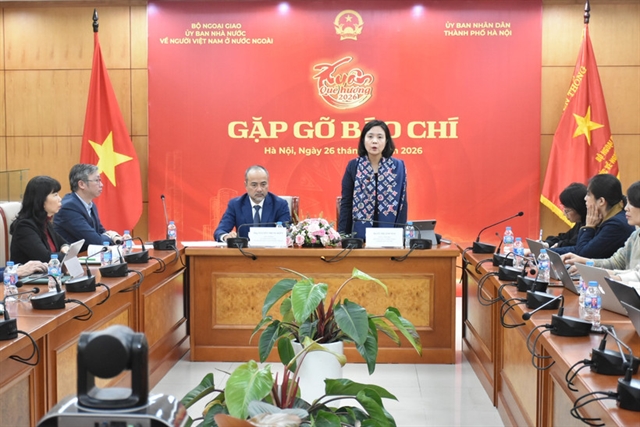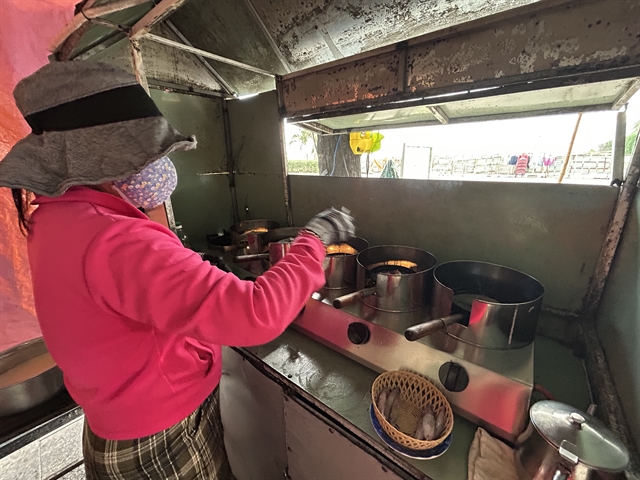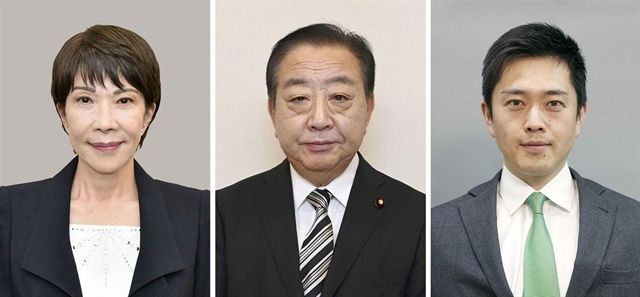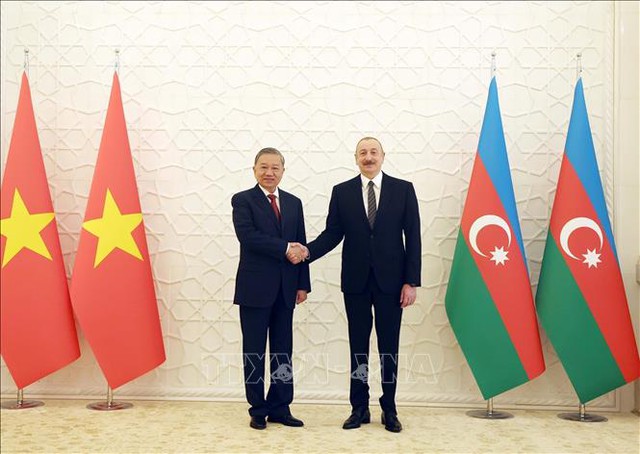 Politics & Law
Politics & Law

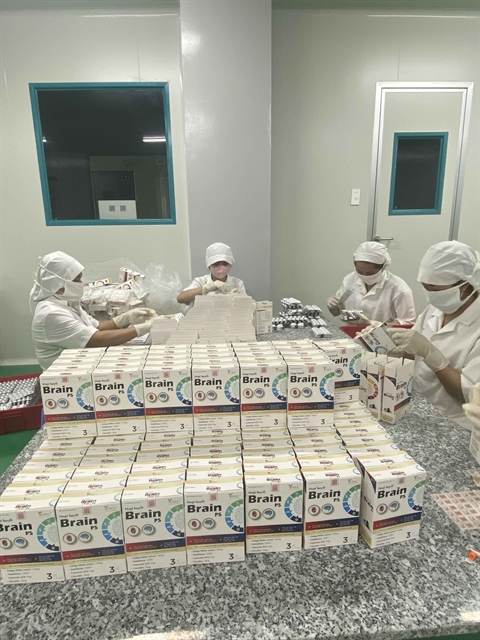
|
| Workers package pharmaceuticals at a factory in Long An Province. — VNA/VNS Photo |
HÀ NỘI — The draft version of the revised Pharmacy Law was discussed at the 15th National Assembly's 8th session on Tuesday, aiming to position the pharmaceutical industry as a cornerstone of the economy.
Chairwoman of the National Assembly's Committee for Social Affairs Nguyễn Thúy Anh presented feedback and updates to the draft version during the discussion.
In her report, she outlined the country's policies on pharmaceuticals and the industry's development. She also highlighted the law's Article 8, which had been revised to enable incentives and investment support for the industry.
She also underlined the role of Article 7 in "elevating the pharmaceutical industry to a cornerstone of the economy", which centres around prioritising the purchase of domestically-produced drugs in public healthcare facilities, streamlining administrative procedures for drug registration and import permits and reducing prices for certain pharmaceuticals to attract technology transfers.
Several regulations have also been revised and incorporated into the draft version to improve the oversight of pharmacy chains, including Article 48, covering the definition of what actually constitutes a pharmacy chain, Article 33, regulating business licences for pharmacy chains and Article 17, involving the qualifications and responsibilities of pharmacists in a chain.
Regarding the online sale of pharmaceuticals, Article 6 and Article 42 have been amended to specify the types of pharmaceuticals that can be sold online, expand the range of prohibited activities on online platforms and raise the functions of online pharmacies.
Deputy Nguyễn Tâm Hùng from Bà Rịa-Vũng Tàu Province said they generally supported the draft version but called for clearer definitions of certain terms, especially those related to medicinal herbs.
He stressed the importance of establishing standards to ensure herbal products are safe for pharmaceutical production.
The NA deputy also proposed stricter quality control measures for online drug sales, arguing that such measures are necessary to prevent counterfeit and substandard drugs on online platforms.
Deputy Trần Thị Nhị Hà from Hà Nội City highlighted inconsistencies in the draft law's approach to price management for prescription and non-prescription drugs. She questioned why only the prices of prescription drugs are subject to mandatory publication.
The draft law mandates that provincial-level People's Committees collect drug price declarations from local pharmacies. However, she warned that the lack of clear criteria could result in inconsistent implementation across different provinces.
Additionally, the administrative burden of price declaration collection, she believed, would be immense in big cities, such as Hà Nội with nearly 10,000 retail pharmacies.
She thus suggested lawmakers specify which types of pharmacies are mandated to price declaration to ensure consistency.
Deputy Nguyễn Lâm Thành from Thái Nguyên Province expressed concerns about Article 8's provisions regarding the minimum investment requirements in the industry.
The provisions require a minimum investment of VNĐ3 trillion (approximately $127 million) and the disbursement of VNĐ1 trillion within the first three years for pharmaceutical projects.
Thành argued that these conditions were too stringent, particularly for those related to R&D, technology transfer and traditional medicine production, calling for lower investment thresholds and longer disbursement timelines to attract investors.
Deputy Trần Khánh Thu from Thái Bình Province argued that Article 53a unfairly restricts foreign-invested enterprises (FIEs) from engaging in pharmaceutical storage activities.
She highlighted several free trade agreements, under which Việt Nam had already opened its logistics sector to foreign investors and suggested lawmakers consider revising the restrictions to align the country's legal framework with international norms.
"I suggest lawmakers amend Clause 4 of Article 53a to level the playing field for FIEs regarding pharmaceutical storage activities," said Thu.
Deputy Phạm Khánh Phong Lan from HCM City expressed concern that the existing bidding regulations for drugs prioritise the lowest price, potentially leading to substandard products and undermining the industry's long-term sustainability.
"We need to reconsider our drug procurement regulations to ensure an adequate supply of drugs and vaccines for the people, while also fostering a sustainable industry," said Lan.
She also highlighted several shortcomings in the draft law regarding drug registrations, incentives for domestic pharmaceutical companies and cosmetics and food supplements, urging comprehensive solutions to address these challenges.
Minister of Health Đào Hồng Lan clarified her stance on certain issues, especially those related to specific incentives for the industry.
She explained that while such incentives would be the key to promoting the industry, incorporating all incentives into a single draft law would be challenging, as these often intersect with broader economic regulations.
“We will address specific incentives in specialised laws,” she said. “The draft law will provide general guidelines, while more detailed provisions will be included in relevant economic legislation.”
The minister also touched on the issue of online pharmaceutical sales, highlighting that only e-commerce platforms with online ordering functionality are permitted for the sales. — VNS


